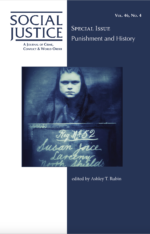Description
The Disciplinary Boundaries of Canadian Identity After September 11: Civilizational Identity, Multiculturalism, and the Challenge of Anti-Imperialist Feminism
This article explores the ways in which Canadian identity has been reconfigured in the post-September 11 period. It is argued that there has been an increased tendency to define Canadian identity along civilizational lines as part of “Western civilization” and in a “clash of civilizations” framework. This reconfiguration has aimed to situate Canada internationally as a partner of the United States in foreign policy; internally, it has led to a re-whitening of Canadian identity and increased marginalization of its nonwhite minorities. Rather than being a simple retreat from Canadian multiculturalism, this reconfiguration represents a crystallization of some of the inequalities and inherent ambiguities and tensions present in liberal multiculturalism even in the best of times. The article analyzes the violent political reaction to a speech made by Sunera Thobani in October 2001 as a litmus test in helping to make sense of the disciplinary boundaries of “Canadian” identity in a period of crisis. Besides demonstrating the rigidity of the newly configured boundaries of Canadian identity and the precariousness of national belonging and limited political citizenship for nonwhite minorities, the Thobani case shows the kinds of feminisms that were still acceptable in this period and why anti-imperialist feminism was a threat to the logic of a civilizational discourse.
anti-imperialist feminism, Canadian identity, citizenship, liberal multiculturalism, September 11, Sunera Thobani, “clash of civilizations” framework, colonialism
Citation: Social Justice Vol. 32, No. 4 (2005): 32-49

